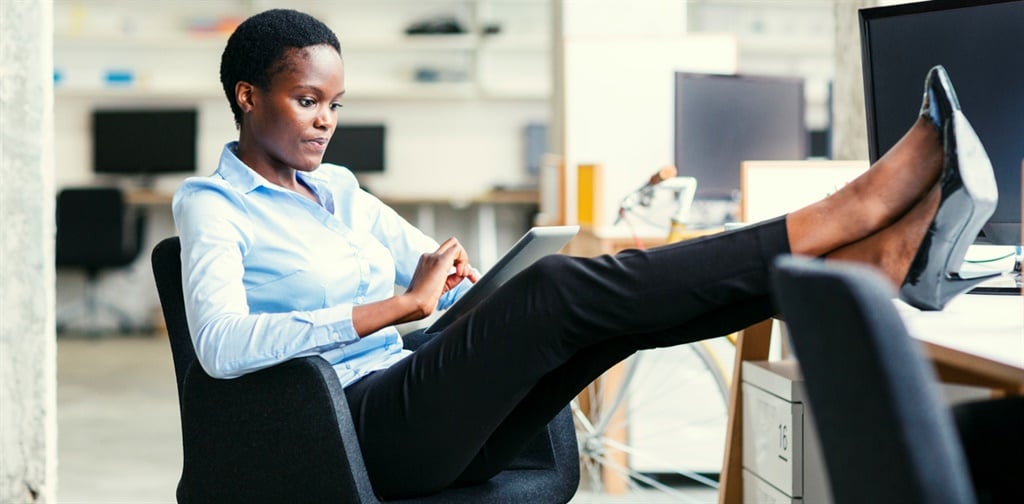
We’ve got the answer, and it’s not pretty. According to calculations from the WEF Global Gender Gap Report 2017, if your gross median monthly wage is R12 631, his is R16 842.
To earn this salary, you could be an assistant manager in Johannesburg, with about 3 years of experience or an accounting clerk in Cape Town, with about five years of experience.
Put more simply, in South Africa, a woman is paid 75c for every Rand a man is paid.
That’s right, the gender pay gap in South Africa is estimated to be 25%.
READ MORE: 5 reasons we know that the future is female
Or, to put it another way, women in South Africa basically stop earning a salary at the end of September and essentially work for free through October, November and December.
How is this even possible?
According to mywage.co.za, systemic causes are education, choice of occupation, profession or trade and sector. And from day one women are often paid less, meaning that they start off on the back foot and have little chance of catching up and closing the gap.
Their research also shows that men more frequently negotiate about position and salary, while women ask for increases less frequently, and are less pushy about it.
READ MORE: Is the world really getting better at paid parental leave?
Our Constitution and Employment Equity Act undertakes to protect and promote equality but there is no explicit provision in our labour laws mandating equal pay for equal work.
Sure, some sectors are better than others at rectifying this issue. According to Stats SA, government salaries for men and women are more similar, and service industry jobs offer morel pay equity as there is a high percentage of female employees, creating an industry which is better attuned to the needs of women.
Male-dominated sectors however, such as mining and engineering, have the largest gaps in terms of gender pay equality.
READ MORE: What to do if you find out your colleague earns more than you
Are we ready for a revolution?
Every year in France, Germany, the Czech Republic and several other countries, women from all over the country actively participate in what is known as Equal Pay Day. They down tools, step away from their desks, lock up shop and take to the streets to protest the pay gap.
The date marks the day in the year when women theoretically start working for nothing, compared to their male co-workers. The day differs based on the pay gap in the country in question. Globally, wage gaps range between 6% and 39%.
They do this to raise awareness, to build a movement and to compel governments and businesses to make a change.
READ MORE: Have to do a panel interview? Here’s what you need to know
It’s worked well for Iceland… in early 2018 the country made it a legal requirement to pay men and women equally. Local businesses employing over 25 people must obtain government certification of their equal-pay policies. Non-compliant businesses are fined.
“We need to make sure that men and women enjoy equal opportunity in the workplace,” said Equality and Social Affairs Minister Thorsteinn Viglundsson. “It is our responsibility to take every measure to achieve that.”
What South Africans say
We asked a few men and women what they thought of the pay gap:
He declined to elaborate and then left the conversation when pressed.
What can I do?
In 2017 Labour Minister Mildred Oliphant announced reforms to labour legislation, highlighting the section of the law that deals especially with equal pay for work of equal value:
“The Act deals explicitly with unfair discrimination by an employer in respect of the terms and conditions of employment of employees doing the same or similar work or work of equal value. Differentiation may amount to unfair discrimination unless the employer can show that differences in wages or other conditions of employment are in fact based on fair criteria such as experience, skill, responsibility and so on.”
By standing up for your rights as outlined above, being aware of what you are worth and overcoming any fear of asking for what you deserve, we can work towards a more equal South Africa, together.
READ MORE: How to find a side hustle to boost your income
Sign up to W24’s newsletters so you don't miss out on any of our hot stories and giveaways.




 Publications
Publications
 Partners
Partners










